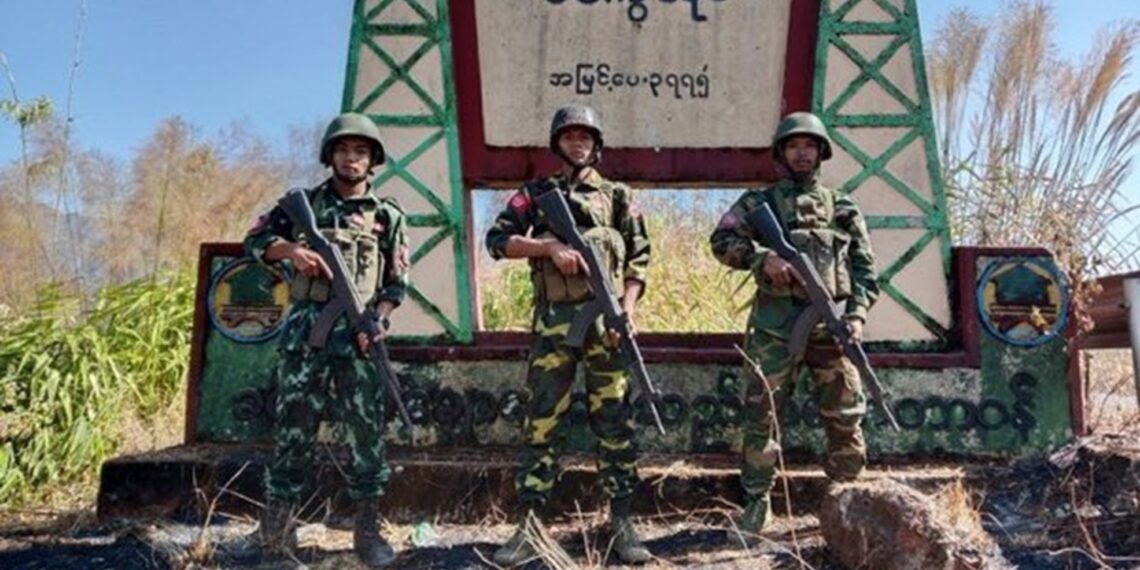The Arakan Army, with which the Mohammad Yunus-led interim authority has made clandestine arrangements to support in its military offensive against the Myanmar military junta, has been characterised as an “unreliable partner” by a reputed Bangladeshi think tank.
In a policy brief, the Dhaka-based Bangladeshi Institute of Peace and Security Studies (BIPPS) says in no uncertain terms that the “Arakan Army, which is not recognized as a sovereign actor, is an unreliable partner due to historical ties with Chinese-backed militias like the United Wa State Army”. Northeast News has accessed the policy brief.
“The (humanitarian) corridor”, the policy brief says, “lacks legitimacy under international law as it is going to be initiated without consent from Myanmar’s government, raising serious legal and diplomatic concerns”.
While there is sufficient concern in Bangladeshi political and security circles over the Yunus-led interim authority’s dalliance with the Arakan Army, BIPPS’ analysis of recent the outfit’s recent military gains in the Rakhine State is based on the understanding that “recent unauthorized incursions (into Bangladeshi territory), including cultural engagements, heighten the risk of cross-border instability and challenge national sovereignty”.
More recently, the Bangladesh Nationalist Party (BNP), the single-largest political outfit in the country now, voiced similar concerns which the Yunus-led interim authority, particularly key functionaries such as National Security Adviser (NSA) Khalilur Rahman, has not given due consideration.
Bangladesh political analysts are of the opinion that the Yunus administration’s “obdurate” stand on getting involved in the Rakhine-Myanmar military mess is primarily at the behest of the West, especially the United States that seeks to “employ” the Arakan Army to undertake a proxy war aimed at dislodging the military junta forces from three key townships – Sittwe, Kyaukphyu and Manaung – which are part of the Rakhine State.
BIPPS’ argument is that the “absence of military quarantine along the Bangladesh-Myanmar border defies standard border protection protocols amid active conflict, leaving the region vulnerable”.
Pointing to the absence of an accountable government in Dhaka, the BIPSS policy brief says that “without parliamentary oversight and expert consultation, the (safe) corridor agreement sets a dangerous precedent of bypassing democratic mechanisms in foreign and security policy decisions”.
Taking a strong position on the Yunus administration’s decision, the policy brief says in no uncertain terms that “no official demarcation or operational blueprint has been released, and the identity of its regulatory and security authority remains undefined”.
The policy brief clearly warns that “a poorly managed corridor may become a conduit for narcotics and arms smuggling, amplifying security threats from existing trafficking routes through Myanmar.
In this context, Indian security agencies continue to remain “worried” with the movement of narcotics substances into India’s Mizoram where at least six entry points for drugs from Myanmar continue to pose a challenge to border guarding forces.
Cautioning that “establishing a corridor outside the established frameworks may set precedent for future interventions in Bangladesh under similar justifications”, the BIPSS policy brief points to “adverse responses” from other “stakeholders” – such as “Chinese, Indian, and Russian infrastructure interests” – could deepen “Rakhine’s geopolitical complexity” when “any unilateral move” is being sought to be made.
Without pulling punches, the BIPSS policy brief holds the Bangladesh interim government’s “decision to establish a humanitarian corridor into Rakhine” as having been made “under undisclosed conditions, lacking transparency and public accountability”.















